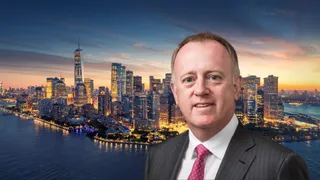How MGAs can make reinsurers more innovative and profitable
Overcapacity in the industry is a red herring—the real issue is one of underinsurance, writes John Holm, executive, MGA Investments at Asta Underwriting Management.
There are constant reports of overcapacity, but in reality the problem is as much one of underinsurance and the need for insurers and reinsurers to find new profitable business opportunities. Urging reinsurers to grow their top line seems contrary to popular rhetoric but, perhaps it’s time to re-evaluate this stance and look at new business opportunities, particularly around new industry risks.
There are many risks currently emerging but still under the radar and insurers can play an important role in developing insurance products to cover these. This is where innovation is vital if the market is going to continue to grow, rather than stay focused on capacity.
“Their generally low cost ratios and specialist nature mean MGAs have the potential to deliver excellent diversification benefits for carriers.”
We need to find ways for insurance to evolve, so it can respond to the changing habits and demands of our insureds. Technology has brought about a modern-day industrial revolution that has affected the nature of risks in both new and established industries. Technical, medical and societal change requires constant renewal and new development of insurance products to keep pace with an evolving environment, where sophisticated and often complex insurance cover is needed.
Change and innovation are also happening, but mostly below the radar and in the more mature markets. The challenge lies in the evolution of the risk landscape for traditional property and casualty liability risks, and finding the expertise to underwrite and price them.
Such risks range from decommissioning the whole range of old technologies, to the potential political risk that can be clearly seen in the current political turmoil not only in western democracies but worldwide.
When it comes to new classes and new technologies such as blockchain, understanding how to insure the potential risks that might emerge, and how you can measure and understand the risk and the full extent of its uses are not fully clear. Data is therefore the issue, and understanding ‘new’ data is key.
Not only is it difficult to access these new businesses, it is also very expensive, time-consuming and, ultimately, risky. Many existing underwriters with successful and established books of business might be reluctant to take the necessary risks and be innovative enough to bear the financial costs of developing new books of business, particularly as in the newer classes of business there are concerns that perhaps the industry does not fully understand the risks.
The role of MGAs
Demand is set to increase and there will be plenty of opportunities for profitable growth. But for reinsurers to take up the task themselves, they have to be big enough to interest large entities if they are to invest themselves in new classes of business. How can carriers access this business without bearing significant upfront capital costs and investment?
Historically, insurers and reinsurers develop new markets by assembling a team to go out into the market and look for opportunities to build relationships with new industries and their brokers. This will remain a successful way for many classes but for others, it can be challenging to reach the right brokers and ultimately the consumers in emerging markets.
This where we can turn to managing general agents (MGAs). MGAs need to be at the forefront of these efforts and I believe they will play an increasingly leading role in industry innovation.
Their generally low cost ratios and specialist nature mean MGAs have the potential to deliver excellent diversification benefits for carriers. Working with an MGA offers a carrier the opportunity to innovate without necessarily taking the sometimes daunting step of making an investment and being exposed to risk that could impact their own balance sheet.
By their very nature, MGAs are agile and nimble, and free from legacy issues and weighty corporate structure and controls. This enables them to engender their own culture of innovation and they are well placed develop the flexible and responsive solutions their specific market requires.
The word often used with innovation is ‘disruption’ and again MGAs are the ideal vehicles to test out and develop disruptive strategies.
It’s a very exciting time to be working in the insurance industry—we are experiencing rapid change and in the middle of a technological revolution affecting how we live and work. These developments represent huge growth opportunities for the insurance industry and MGAs have the right structure, culture and attitude to take on these risks. The reinsurer may be delegating the pen but a lot of the ‘make it happen’ risk is outsourced to the MGA. A world of opportunity awaits those who are willing to innovate and embrace an entrepreneurial outlook.
John Holm is executive, MGA Investments at Asta Underwriting Management. He can be contacted at: j.holm@asta-uk.com
Already registered?
Login to your account
If you don't have a login or your access has expired, you will need to purchase a subscription to gain access to this article, including all our online content.
For more information on individual annual subscriptions for full paid access and corporate subscription options please contact us.
To request a FREE 2-week trial subscription, please signup.
NOTE - this can take up to 48hrs to be approved.
For multi-user price options, or to check if your company has an existing subscription that we can add you to for FREE, please email Elliot Field at efield@newtonmedia.co.uk or Adrian Tapping at atapping@newtonmedia.co.uk
Editor's picks
Editor's picks
More articles
Copyright © intelligentinsurer.com 2024 | Headless Content Management with Blaze

